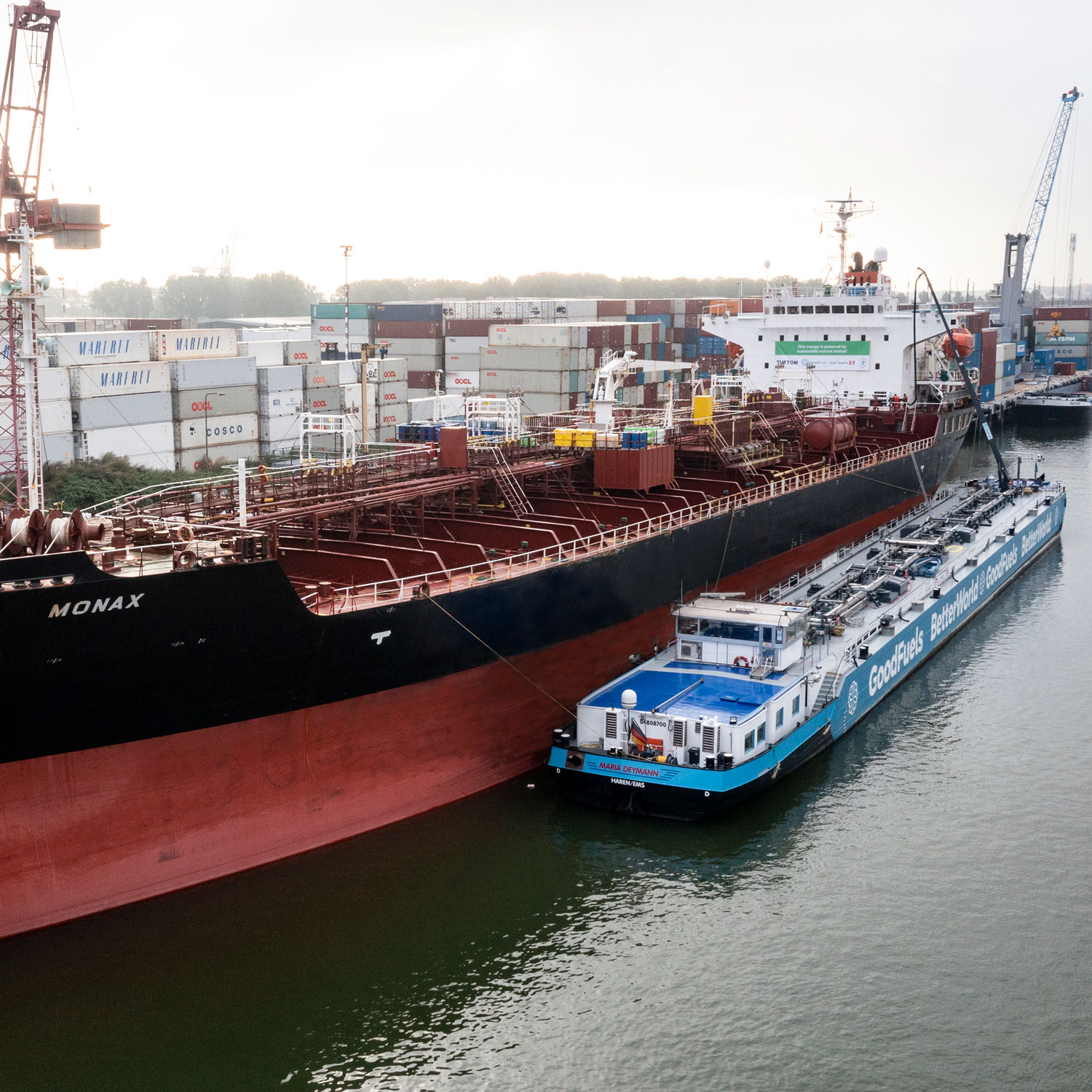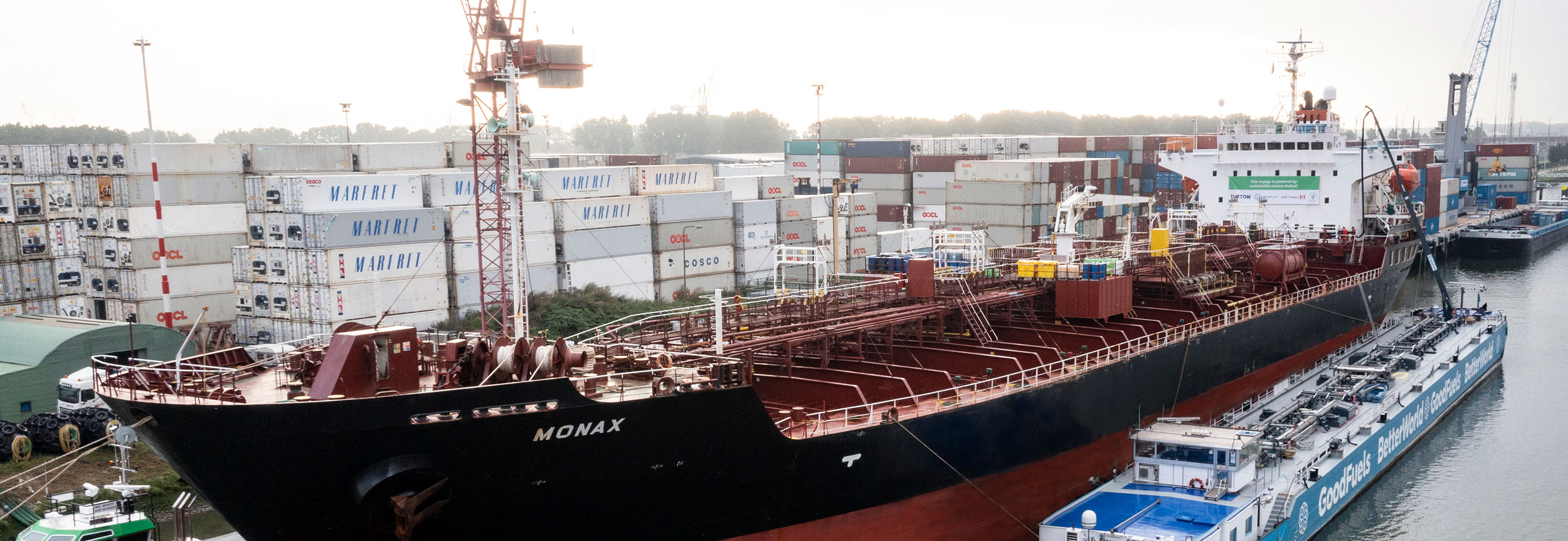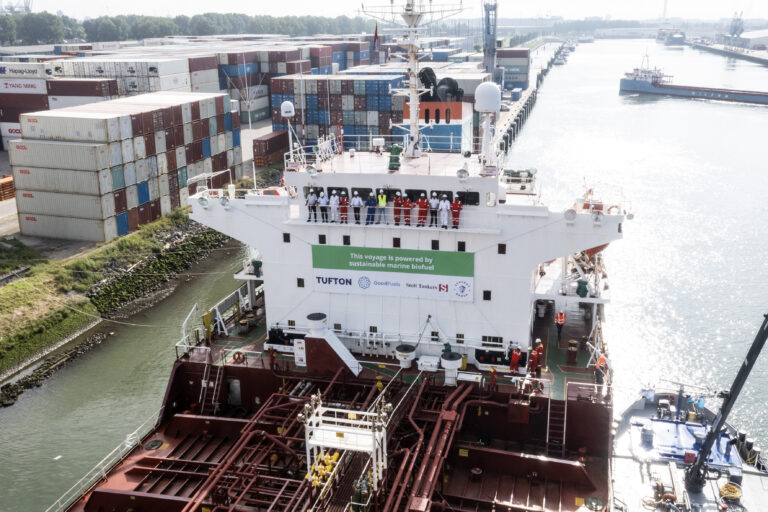Tufton and GoodFuels partner to accelerate sustainability in shipping


Tufton’s partnership with GoodFuels reduces the environmental impact of its operations and advances the decarbonisation of shipping
As part of its long-term sustainability strategy, Tufton completed a successful voyage with the use of 100% sustainable marine biofuel in partnership with leading marine biofuels supplier GoodFuels, together with Stolt Tankers and the technical managers Synergy Group.
The sustainable biofuel, derived from feedstocks such as used cooking oil and waste animal fats, was used on board the 20,762 DWT chemical tanker Monax on its voyage from North Europe to Canada. This sustainable biofuel delivers a well-to-exhaust CO2 reduction of between 80% and 90% compared to fossil fuel equivalents without requiring modifications to the engine or the fuel infrastructure.
Monax is one of the seven Tufton vessels that operate under the Stolt Tankers Joint Service (STJS) Deep-Sea Fleet pool. The use of this biofuel is in line with both Tufton’s and Stolt Tankers’ ambition to significantly reduce the carbon emissions from their combined fleets. As part of the pooling arrangement, both organisations have also agreed to partner on sustainability and environmental projects, including this biofuel testing programme.
As part of its long-term sustainability strategy, Tufton completed a successful voyage with the use of 100% sustainable marine biofuel in partnership with leading marine biofuels supplier GoodFuels, together with Stolt Tankers and the technical managers Synergy Group.
The sustainable biofuel, derived from feedstocks such as used cooking oil and waste animal fats, was used on board the 20,762 DWT chemical tanker Monax on its voyage from North Europe to Canada. This sustainable biofuel delivers a well-to-exhaust CO2 reduction of between 80% and 90% compared to fossil fuel equivalents without requiring modifications to the engine or the fuel infrastructure.
Andrew Hampson, Chief Executive Officer at Tufton, said: “I am pleased to see the positive results of the biofuel powered voyage. Tufton is committed to increasing the use of zero emission fuels in commercial operation over time as a step towards transitioning the portfolio fully to zero-carbon energy sources by 2050.”

Also commenting on the announcement, Bart Hellings, Chief Operating Officer at GoodFuels, said: “As a market leader and pioneer, supplying a credible sustainable solution to Tufton demonstrates how our sustainable marine biofuels can unlock an immediate decarbonisation impact, while also supporting the wider shipping industry to meet its environmental regulatory targets. The time for action on shipping’s carbon emissions is now, and Tufton is joining the ranks of our marine biofuel pioneers committed to sustainability.”
Lucas Vos, President Stolt Tankers said: “It’s great to see the positive results of the biofuel trial and I am pleased that Stolt Tankers and Tufton have taken the first step in our mutual commitment to protecting the environment. We are committed to working with our partners to explore new technologies as the industry moves towards a carbon-neutral future while continuing to provide customers with the highest levels of quality and safety that they expect from us.”
Monax is managed by Synergy Group, whose ship’s management team and onboard crew ensured continuous operational safety and optimal performance during the trial. Captain Rajesh Unni, Founder & CEO of Synergy Group, one of the world’s leading ship managers, said: “This project enabled us to deploy our full range of technical expertise and also demonstrated that a cleaner shipping industry is both feasible and achievable, even in the short-term. Biofuels have a vital role to play in decarbonising shipping as we establish ourselves as a truly sustainable industry.”


